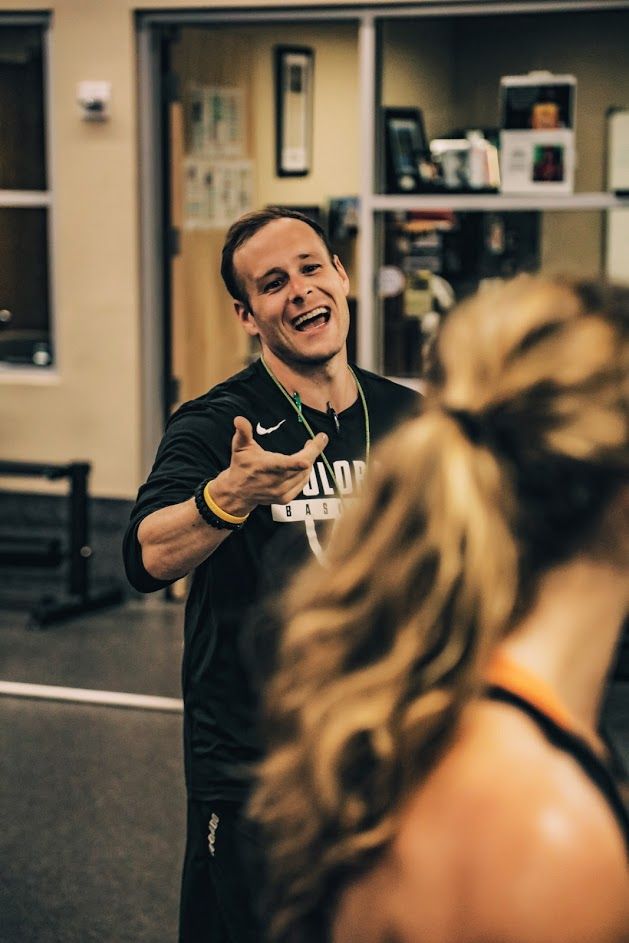Radical Coaching
You can't shortcut trust. You cannot microwave relationships. How do you develop the trusting relationships you need between your athletes and co-workers?

Often times, new strength and conditioning coaches will ask me if I have any advice that can help them jumpstart their ability to develop trust from their student-athletes. They often reach out on Twitter or Instagram with a direct message and ask if there are methods they could use in order to get athletes to buy-in to their training programs. Over the years, I've thought of the best way I could answer this question - in a way that is authentic to my true myself and doesn't immediately dissuade the other party.
Relationships & Trust take Time.
You need to give a damn!
Historically on this site, I've often wrote about 'growth hacking' and other strategies for increasing company/following growth, profits, scalability, etc. This history might pigeon hole me into the continuation of writing about my 'Top 10 Tips to Build Trust' but the reality is:
You can't shortcut trust. You cannot microwave relationships.
Strong relationships, between your athletes and co-workers, depend on a sincere care of the other party, and the ability to openly share what is on your mind. Too often, people get to a place where they deeply care but are too afraid of saying anything out of a fear of chipping away at their relationship. This is what Kim Scott calls Ruinous Empathy. Your silence, and inaction, results in more hardship and disappointment than what the initial conversation could have ever manifested.

Our goal should be trying to incrementally move our relationships from the “comfortable middle” to Radical Candor (or what I'm calling in this article Radical Coaching). Make no mistake, doing so will be uncomfortable. It will also be time-consuming as it requires you to give a damn about the wellbeing and welfare of the other person. Isn't that called being a good person? Being human?
At all cost, we want to move away from the "comfortable middle" as it creates the byproduct resentment. It plants the seed for mistrust because others don't understand why they are under-performing, under-communicated, failing to meet objectives, but paradoxically, failing to receive any critical feedback or coaching.
It is times like this where we need Radical Coaching
RADICAL COACHING
My advice to those who reach out on Twitter and Instagram:
Focus on bringing your whole self to work. Be where your feet are.
I talk with coaches nearly every day, from different levels of professional coaching roles, and the feedback I receive from them is generally the same. They are excellent technicians, they have an amazing sense of X's & O's, strategies for annual periodization models, even the use of technological innovations to solve complex problems. Often though, I hear story after story about how they feel they are under-performing and struggling with the people-management piece of their role; especially if they are new in a supervisory-type position.
The best managers I've been around do ONE thing in common. They are solely responsible for the organization's results. They take extreme ownership of the results of the unit, department, or organization and put their "stamp" on the results; good or bad. If there is success through the company they share the accolades with their team as it would have been impossible to achieve this success without them. If there is a failure throughout the company, they take ownership for the failure, personal let-downs from employees, and take responsibility to provide the necessary steps to coach and change behaviors.
The second common strategy, I hear from successful C-level executives and coaches alike is they understand in order to accomplish big things, they need to communicate clearly and delegate responsibility among their team.
Organizational Success is a Team-Sport
- One-on-One Guidance
- Exceptional Team-Building
- Deliver Results
RADICAL COACHING IS NOT ABOUT POWER
Those of us who's been in the coaching profession for some time understand that power dynamics will only take you "so far". What is central to effective leadership & management is establishing trusting and connected relationships with everyone that you work with.
To often, novice coaches try to flex & exercise their power authority long before spending the necessary time to development meaningful and powerful connections. This is a critical error!
Coaches must understand that establishing a culture where everyone feels compelled to provide guidance and feedback (both in the form of praise and constructive/radical criticism) helps keep the organization and your people moving forward. In order to create this environment and foster this level of vulnerability and openness, must first understand what truly motivates each person among your team. The same drivers for one person will not be effective the next.
Above all, we must create an environment that is collaborative. We must create an environment that drives each person; and this means we must be deliberate about understanding the unique individual needs of each person we work with and carefully tailor the environment for each person.
As mentioned above, organizational success is a team sport. The organization's results will come from collaboratively working within a shared vision. Your relationships and responsibilities reinforce each other, both positively or negatively; and this dynamic is what will drives you forward as a coach.
RADICAL COACHING IS ABOUT CARING
As a coach, boss, mentor, or even an junior-level employee, how do we begin to cultivate this style of coaching? How do we bring out these qualities that help us to co-elevate each other to new positions and self-actualization?
While there is no one way, no hard and fast universal way that we development this relationship with others, it ultimately comes down to two fundamental behaviors.
- We MUST care personally.
- We HAVE to challenge directly.
Radical coaching is what happens when you combine two critical qualities; caring personality for your people and having the courage to challenge them directly.
This action (actually giving a damn about people) helps you develop a trusting relationships with those you work with and it aids in enabling transparency and the necessary authentic conversations to occur.
People have to understand that your challenging/coaching comes from a place of deeply caring about them, their personal development, and personal growth.
These conversations are absolutely critical to accomplishing the audacious objectives and goals that most organizations strive to accomplish. When your co-workers and athletes TRUST YOU and believe that you care about them, they are much more likely to feel the immense sense of satisfaction that your praise brings. It will mean the world to them and like great coaching situations, people will go to great lengths to accomplish goals for their team.
On the other hand, when there are moments of challenging criticism (and there will inevitably be some) those that understand that you deeply care for them and their own success, will often act upon that criticism in a more meaningful way.
HOW TO COACH "PERSONALLY"
There isn't a magic recipe to coaching "personally". In all honesty, you have to REALLY care about the other person.
You have to be a human and not some robot.
You have to be where your feet are and connect on a human personal level to the person you are attempting to coach. Do not get caught up in the artificial robotic HR professionalism of the corporate entity and actually CONNECT! Spend the time to get to know athletes and let them into your lives & you into theirs.

Coaching personally is more about acknowledging that we are all human beings first, with different aspirations, backgrounds, talents, weaknesses, and much more that extend well beyond just the sport or athletics. We must be deliberate with carving out meaningful time to have deeper connections and real conversations with people that extend far beyond the typical water cooler chat that bubbles up.
HOW TO COACH "CHALLENGE DIRECTLY"
Challenging and coaching each other is essential to doing great work. It also helps all of us co-elevate each other to higher professional pursuits. In addition, it is the fabric of building great relationships. Challenging others, and sharing your own willingness to admit mistakes, demonstrate vulnerability, and show weaknesses, encouraging others to challenge you.

These actions all help build trusting relationships because it shows you CARE about them enough to demonstrate areas they can grow and improve. It also demonstrates that your willing to call a spade a spade, to admit with things are not working, when you're wrong, and to double-down on your efforts to fix them.
There is no shortcut to building trusting relationships with others. It takes time and effort. Once built, it takes even more time to cultivate and tend to these relationships. That constant gardening will cultivate a trust between people to that allows for honest and reciprocal challenge; which will help you grow and develop into a better athlete and coach.

